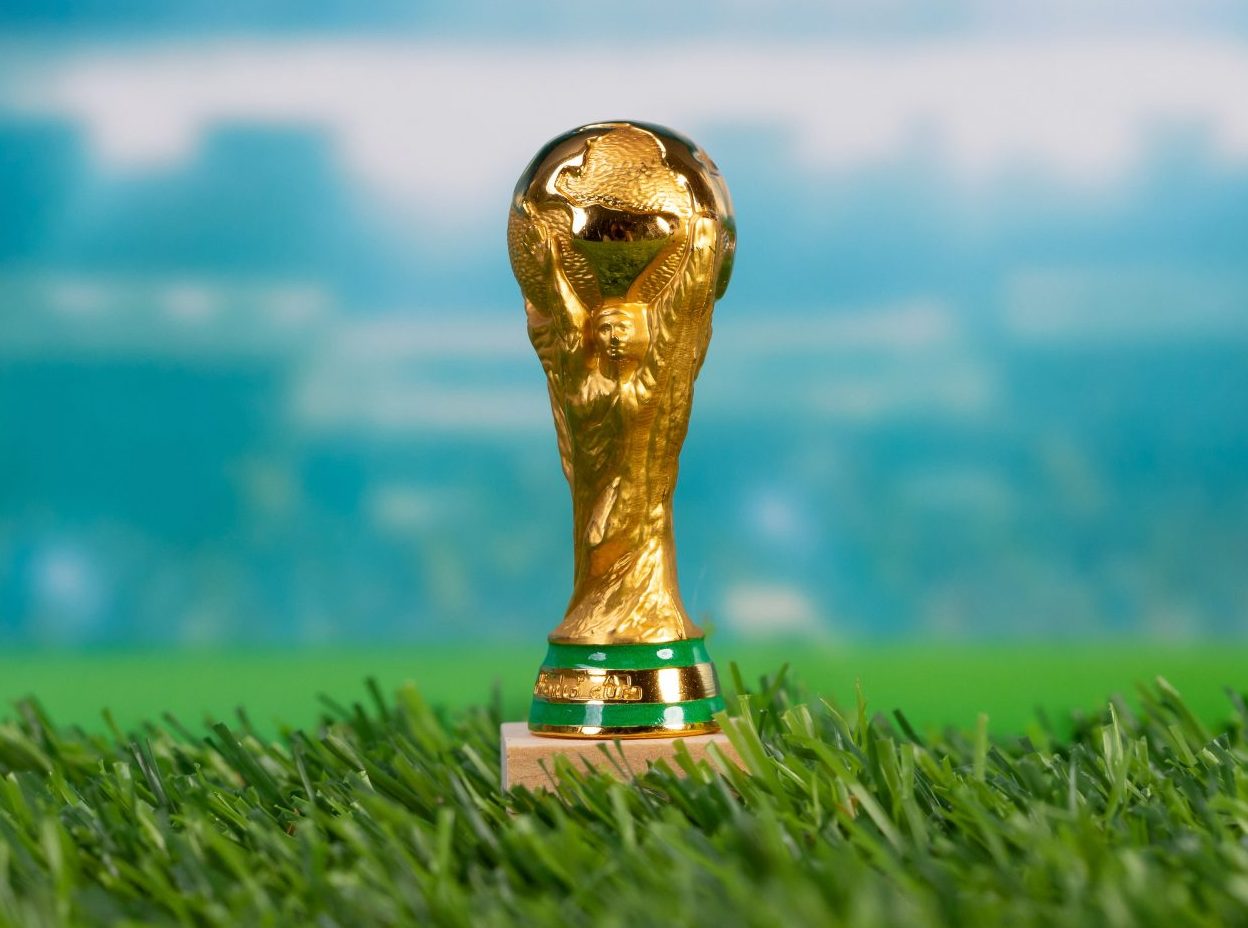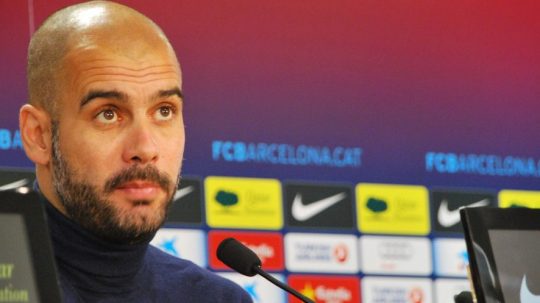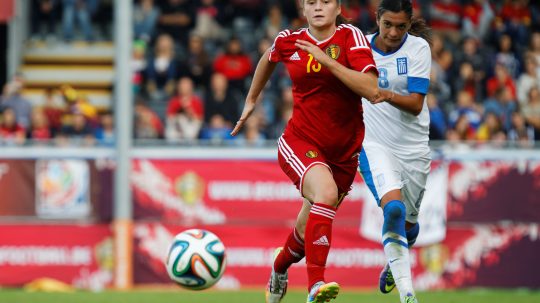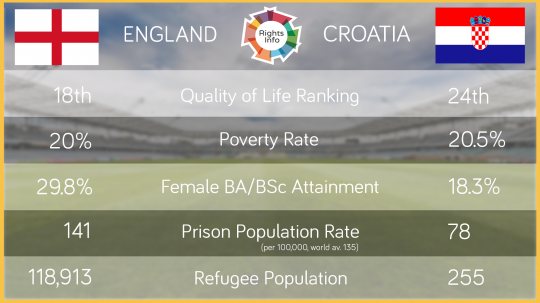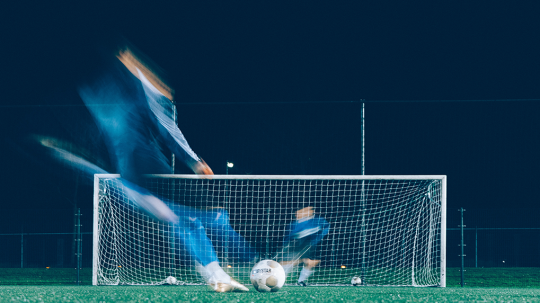Ahead of the men’s football World Cup final this weekend, we look at the human rights issues which have been thrown up by this year’s tournament. Attracting controversy from the outset, the competition has been played against a backdrop of human rights questions and campaigns. Fans around the world have called out football’s global governing body, FIFA, for its “deafening silence” on human rights.
In 2010, as soon as FIFA announced that Qatar would host the 2022 World Cup, controversy over its selection began.
Boycotts and criticism
Some football supporters in the UK have boycotted the event, taking a stand against the deaths of thousands of migrant workers who built Qatar’s new stadiums or the host country’s stance on women’s rights or LGBTQ+ rights. The movement has been large enough that some pubs and bars have chosen not to show any World Cup matches.
Meanwhile, former England players have faced heat for taking part in the tournament, for instance as commentators. They have included former England international Gary Neville, who has been criticised publicly for his decision to participate in and profit from the event. Former England captain David Beckham has also been lambasted for acting as a paid ambassador for this year’s World Cup. Three Lions Pride, the England team’s largest LGBTQ+ supporters group, has said that Beckham should no longer be considered an ally when it comes to LGBTQ+ rights.
Taking the knee
Although England were recently defeated by France in the quarter finals, the team has made headlines with its reactions to human rights issues which have arisen throughout the tournament.
It has been an England team tradition to take the knee as an anti-racist gesture before their matches ever since the killing of George Floyd by American police in 2020, which rekindled the global Black Lives Matter movement. The team has continued that practice into the World Cup. England manager Gareth Southgate said: “It’s what we stand for as a team and have done for a long period of time… We think it’s a strong statement that will go around the world for young people, in particular, to see that inclusivity is very important.” It was a sign of solidarity that the team were able to show throughout the competition.
Teams told not to wear ‘OneLove’ armbands
England, Wales, Belgium, Switzerland, Germany and Denmark planned to wear ‘OneLove’ anti-homophobic armbands in defiance of FIFA edicts, but it raised the prospect of captain Harry Kane being suspended from England’s final group game.
Following ‘crisis talks’, the English Football Association and five other European FAs made a joint statement. It read: “We can’t put our players in a position where they could face sporting sanctions, including bookings, so we have asked the captains not to attempt to wear the armbands in games.”
According to FIFA, the players were warned that they may receive yellow cards during games if the ‘OneLove’ armbands were worn. The announcement came shortly after FIFA had announced its own armbands in partnership with three United Nations agencies the day before the tournament began.
More than disappointing that @FIFAWorldCup @FIFAcom silence & deflection means European captains face starting games with yellow cards for trying to highlight issues around human rights. Their basic rights to freedom of speech & expression being crushed by FIFA #NoPrideWithoutAll
— 3LIONSPRIDE 🌈🦁🦁🦁⚽️🏴🏳️🌈 (@3Lionspride) November 21, 2022
“Gagged by FIFA”
In an act of defiance, Germany players posed for the camera covering their mouths with their hands to suggest that they had been ‘gagged’ by FIFA.
The German team issued a statement reminding FIFA of the importance of standing up for people’s rights: “It wasn’t about making a political statement – human rights are non-negotiable,” it said. “That should be taken for granted, but it still isn’t the case. That’s why this message is so important to us. Denying us the armband is the same as denying us a voice. We stand by our position.”
It wasn’t about making a political statement – human rights are non-negotiable. That should be taken for granted, but it still isn’t the case. That’s why this message is so important to us.
Denying us the armband is the same as denying us a voice. We stand by our position. pic.twitter.com/tiQKuE4XV7
— Germany (@DFB_Team_EN) November 23, 2022
While the players posed for a team photo, Germany’s interior minister Nancy Faeser was pictured sitting next to the president of FIFA, Gianni Infantino, in the stands, sporting the armband that players had been forbidden to wear.
Before the World Cup, Faeser stated: “In today’s times, it is incomprehensible that FIFA does not want people to openly stand for tolerance and against discrimination. It does not fit in our times and it is not appropriate towards people.”
‘Women, Life, Freedom’
The Iranian football team refused to sing the Islamic Republic’s national anthem before their World Cup match with England. Their refusal to do so has been attributed to their support for anti-government, pro-equality protests in Iran.
Iranian captain Ehsan Hajsafi expressed his solidarity with the protesters back home. “Before anything else, I would like to express my condolences to all of the bereaved families in Iran,” he said. “They should know that we are with them, we support them and we sympathise with them.” He later added: “We have to accept the conditions in our country are not right and our people are not happy. We are here but it does not mean we should not be their voice or we should not respect them.”
The team did sing the anthem ahead of later games, after they faced fierce criticism from government officials. Iranian supporters were seen carrying a flag emblazoned with the words ‘Women, Life, Freedom’, referring to 22-year-old woman Mahsa Amini, who died in Iranian police custody in September.
FIFA in the spotlight
FIFA and the global players’ association FIFPRO have signed a Heads of Understanding document this week in Qatar. Infantino and FIFPRO president David Aganzo signed the accord which will ‘help to progress’ and safeguard players’ rights in coming years.
FIFA has been criticised for its silence on the many human right issues that have been highlighted by the World Cup, not just by fans and players, but by human rights experts too.
Human Rights Watch has been vocal in calling out FIFA for its failure to set up a compensation fund for the families of migrant workers who died building venues for this year’s tournament. It has been estimated that Qatar has spent as much as US$220 billion over the last 12 years in preparation for hosting the World Cup.
Andrew Stroehlein, European media and editorial director of Human Rights Watch, said:
“The fund that human rights groups have been pushing for to compensate migrant workers and their families for deaths, injuries and unpaid wages is US$440 million.”
“Qatar and FIFA could have set up the compensation fund with what is, for them, basically pocket change. And they would have been praised for their humane, progressive approach.”
The World Cup final will take place this Sunday 18th December.

